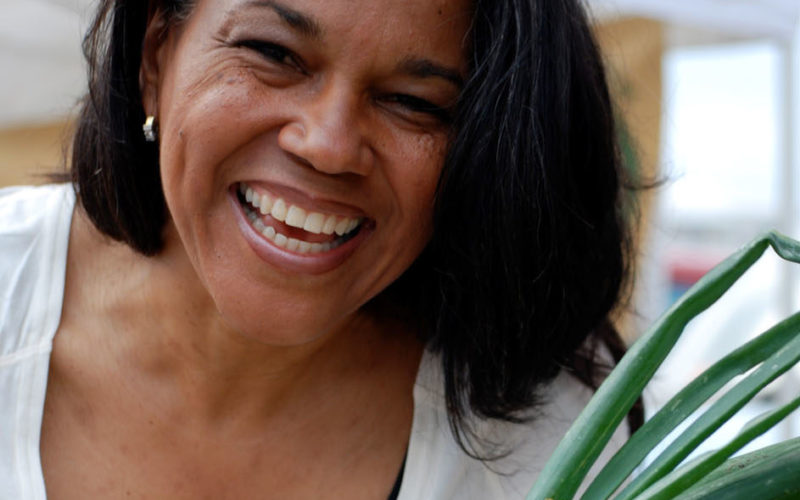Speaker shares important stories through food
JOCELYN MURPHY
jmurphy@nwadg.com
How do you begin to tell the history of a people within a medium where they have been ignored, discarded and sometimes even actively erased? Culinary journalist and author Toni Tipton-Martin begins, in her lectures, with an exercise in implicit bias.
“It’s harmless, so nobody has to be scared,” she promises. “It’s just a personal inventory that I get people thinking about.”
Many stereotypes, caricatures and generalizations about African-Americans — and specifically, as it relates to Tipton-Martin’s work, African-Americans in the culinary world — were formed so many generations ago that modern audiences don’t truly understand what that means, she says. They know the stereotypes exist, but they don’t remember where they came from or understand the way such perceptions became entrenched in our modern society.
“We’re seeing that so much of this heated rhetoric today, and the way that we are manipulating history and truths today, is as dangerous as [it] has ever been, but it’s not new,” Tipton-Martin offers. “So if more people, white people in particular, are made aware of the ways that this practice that has us all up in arms has historic roots, then I think that allows us to forge relationships and build bridges between each other even more.”
Tipton-Martin is the award winning author of “The Jemima Code: Two Centuries of African American Cookbooks,” a community activist and the next speaker in Crystal Bridges Museum’s Distinguished Speaker Series. Public programs manager Sara Segerlin explained to What’s Up! when the series lineup was announced that organizers specifically sought innovators and leaders who promote empathy, inclusivity and equality for the 2018 season.
“The core of my work is racial reconciliation,” Tipton-Martin explains. This mission can be traced, she says, through her presidency at Southern Foodways Alliance and the founding of Foodways Texas, “which all have that same motive, which is that by truth-telling and breaking down barriers that have been artificially created to divide us, we can build up a stronger community and a better resistance — to whatever the oppressive activity is.
“But reconciliation,” she goes on, “does not mean in order for me to tell a broader story about African-Americans in the food world, that I have to take away anything from white history. It is a shared history, and that’s part of the problem — we have neglected to emphasize the importance of collaboration.”
Tipton-Martin then points to the concrete example of the cookbooks discussed and celebrated in “The Jemima Code” — books that would not have been published in the late 19th and early 20th centuries, she explains, without white advocates. In her book and her lecture, Tipton-Martin takes on the myth-dispelling of this historic space — where women of African descent were and are often portrayed as providers of labor, “the demeaning stereotype of an illiterate ‘Aunt Jemima’ who cooked mostly by natural instinct,” explains the book’s description.
“We’re primarily bound to a narrow definition associated with poverty, cooking, survival food,” Tipton-Martin illuminates. “And what we find by having cookbooks, they refute that history and historical representation because the authors pay attention to garnishing, they talk about the way the table should be set, how many inches the table cloth can hang down on one side, which way the flower bowl has to face. … All of those nuances are not lost on these African-American servants. So even in poverty, they go home and they try to the best of their ability to have a lovely experience within a barbaric situation.
“This book shows all the various capacities that African-Americans served in,” she concludes. “The next step is for me to help modern readers connect those dots to what they can do. The first was just getting the book out to show that they existed, and each subsequent project from here forward will, like the peeling of an onion, introduce new, vibrant aspects of African-American food history to modern audiences so that you can embrace it wherever you are.”
__
FAQ
Toni Tipton-Martin
WHEN — 7 p.m. July 27
WHERE — Crystal Bridges Museum in Bentonville
COST — $15; $12/members; $5/students
INFO — 418-5700 or crystalbridges.org









